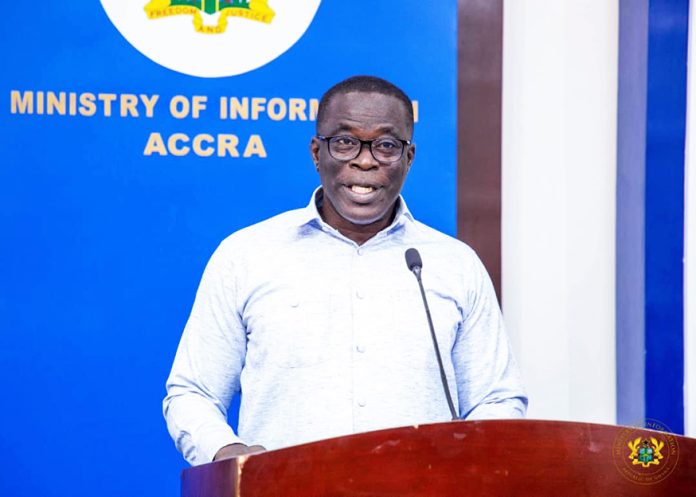
The Social Security and National Insurance Trust (SSNIT) has made remarkable progress in extending pension coverage to the self-employed, through its Self-Employed Enrollment Drive (SEED) Initiative.
Since its launch in May 2023 over 103,000 self-employed Ghanaians have been successfully enrolled, marking a significant stride towards financial security for a large segment of the nation’s workforce.
Mr. Ignatius Baffour Awuah, Minister for Employment, Labour Relations and Pensions, announced this achievement at a recent press briefing organised by the Ministry of Information in Accra.
He emphasised that the SEED initiative was designed to address the persistent issue of low pension coverage among self-employed workers, who constitute a substantial portion of Ghana’s labor force.

“With SEED, we are democratising pension access, ensuring that every Ghanaian, regardless of employment status, can secure their future. This initiative is a game-changer for our self-employed citizens, who previously lacked the means to contribute towards pension,” Mr. Baffour Awuah remarked.
In the first half of 2024, SSNIT collected 90.8% of its projected private sector contributions, amounting to GHS 2.4 billion – just shy of the GHS 2.6 billion target.
Public sector contributions, however, exceeded expectations with SSNIT collecting GHS 3.2 billion, which represents 144% of the projected GHS 2.2 billion.
The SEED initiative itself has already garnered GHS 52.6 million in contributions, a figure expected to rise as more self-employed individuals join the scheme.
“Our focus extends beyond merely increasing coverage; we are committed to ensuring that these contributions result in meaningful benefits for our members. The success of SEED, thus far, reflects the trust self-employed Ghanaians place in SSNIT to protect their future,” the Minister added.
Beyond the success of the SEED initiative, Mr. Baffour Awuah highlighted that SSNIT’s total assets under management have grown substantiall-y, increasing from GHS 15.2 billion in December 2016 to GHS 71.69 billion by March 2024 – a staggering 350% growth over seven years.
In addition to expanding pension coverage, the government is also focusing on enhancing labour market services through the development of the Ghana Labour Market Information System (GLMIS).
Mr. Baffour Awuah disclosed that the Ministry of Employment and Labour Relations is advancing the GLMIS database, designed to provide quality service delivery to job seekers and employers alike.
The platform, accessible online at www.glmis.gov.gh serves as a critical interface between job seekers and employers, facilitating efficient job matching and skills development.
The GLMIS is part of the broader Ghana Jobs and Skills Project, funded by the World Bank, which aims to support skills development and job creation.
“This platform will provide crucial data on skills in demand, identify training needs, and help employers make informed decisions in the labor market,” the Minister explained.
Mr. Baffour Awuah expressed optimism that the GLMIS would address issues of job mismatch, unemployment and underemployment, which are persistent challenges in Ghana’s labor market.
He noted that the platform would also generate timely reports on the true state of the labor market, enabling the government to implement targeted policy interventions for maximum impact.
Furthermore, the Minister reiterated the government’s commitment to responsible management of pension funds and the continuous improvement of labor market coordination, ensuring that all Ghanaians have the tools and support they need to secure their financial futures and find meaningful employment.
“The success of initiatives like SEED and the development of GLMIS underscores the importance of our fiduciary responsibilities.
“We will continue to safeguard pensions and enhance labor market services to ensure that every Ghanaian has the opportunity to thrive,” Mr. Baffour Awuah concluded.








